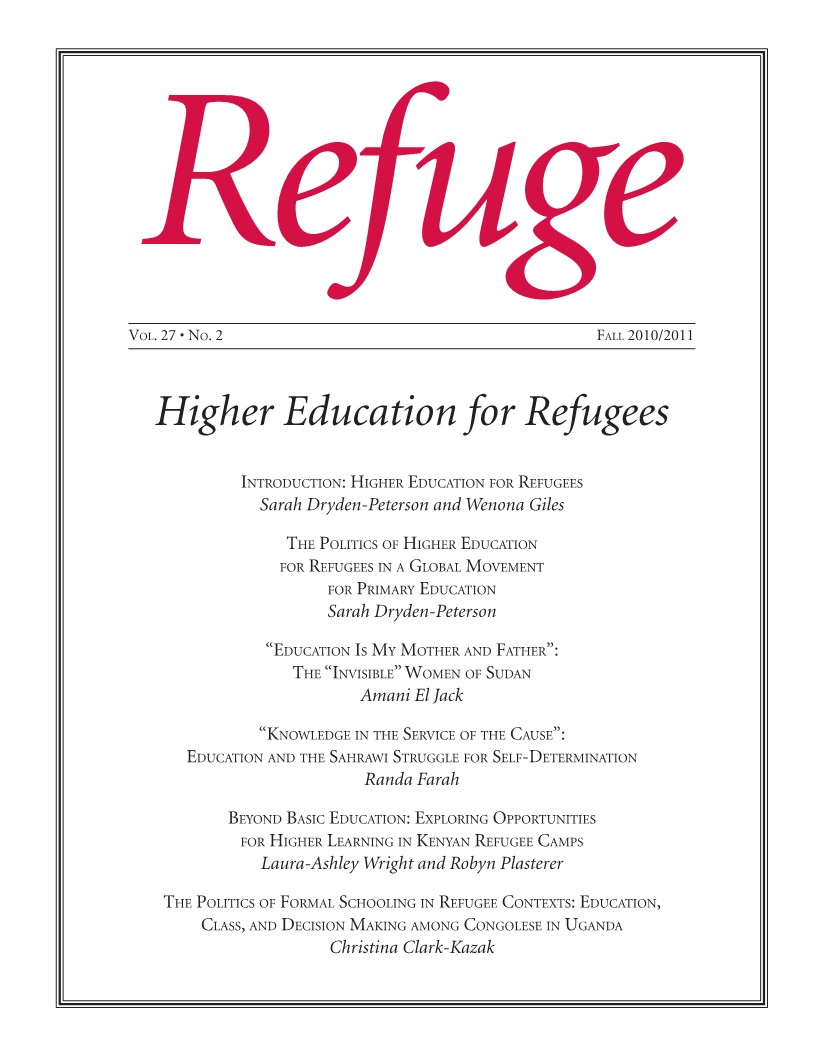Access to Secondary and Tertiary Education for All Refugees: Steps and Challenges to Overcome
DOI:
https://doi.org/10.25071/1920-7336.34725Keywords:
refugee youth, access to education, secondary education, vocational educationAbstract
During situations of displacement, access for refugee youth to secondary educational initiatives is limited at best. However, upon the return of refugees, the national structure of their home country is most often weak and unstable. To ensure the economic, social, and political development of a society that has been severely affected by conflict or disaster, it is imperative that there be a youth population of capable, productive, and educated citizens who may provide an exit strategy from the situation. Future leaders must therefore be given the opportunity to promote the development both of themselves personally, and of their national structures, through learning—notably, secondary, vocational, and tertiary education. This paper underscores the need for and gaps in the provision of secondary educational initiatives, highlighting the many challenges involved in improving refugee youth access to both secondary and vocational education, and highlighting the issues that must be considered by policy and decision makers in order to facilitate and support such access.
Metrics
Downloads
Published
How to Cite
Issue
Section
License
Copyright (c) 2012 Marina L. Anselme, Catriona Hands

This work is licensed under a Creative Commons Attribution-NonCommercial 4.0 International License.
Refuge authors retain the copyright over their work, and license it to the general public under the Creative Commons Attribution-Non Commercial License International (CC BY-NC 4.0). This license allows for non-commercial use, reproduction and adaption of the material in any medium or format, with proper attribution. For general information on Creative Commons licences, visit the Creative Commons site. For the CC BY-NC 4.0 license, review the human readable summary.







